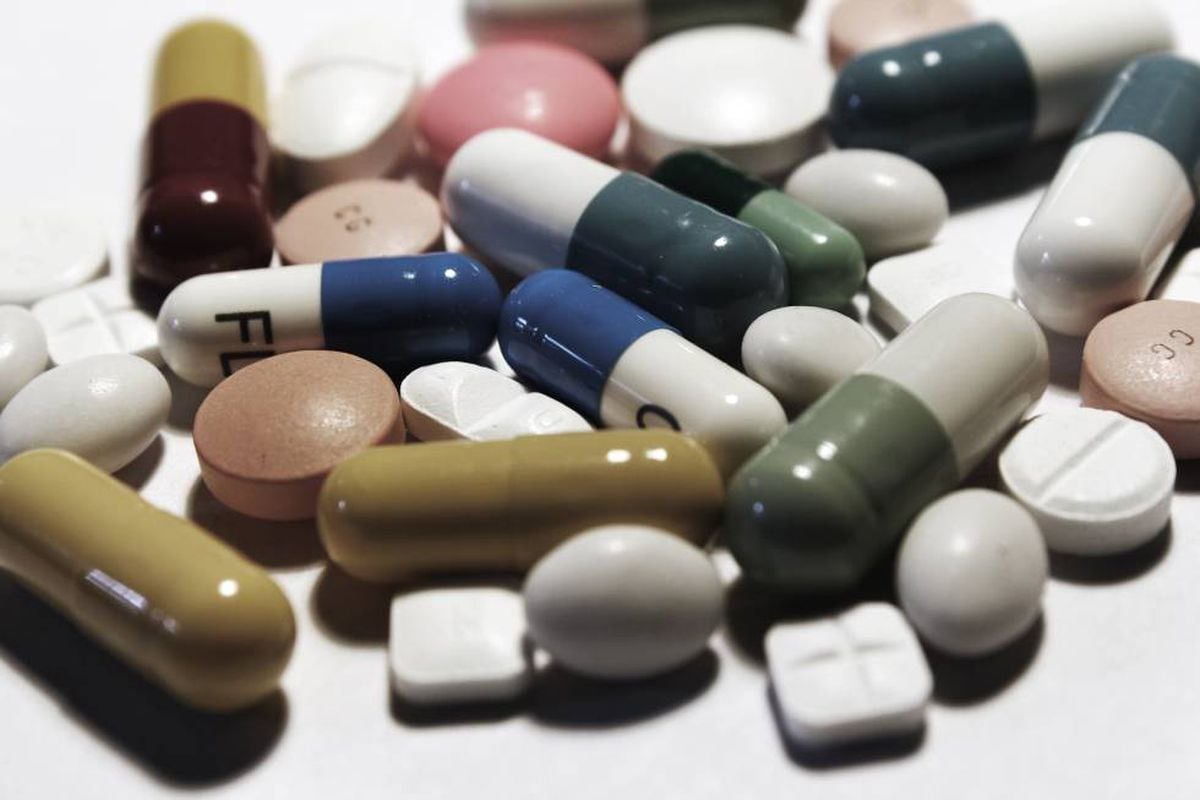The discovery in the second half of the 20th century of many of the antibiotics we use today removed the fear of many once lethal infectious diseases.
However, the bacteria, temporarily defeated, have not stood still and have continued to evolve, generating resistance to drugs.
A 2016 report estimated that super-resistant microbes kill some 700,000 people each year on the planet and estimated that the number could reach 10 million by 2050. This week, an article published in the PNAS magazine suggests that, in addition to the use of antibiotics itself, the boom in the consumption of other drugs such as antidepressants can accelerate the growth of the problem.
The use of antidepressants has skyrocketed in recent years in almost the entire world.
In Spain, between 2020 and 2021, it grew by 10%, and in Mexico, the consumption of these drugs and anxiolytics doubled during the pandemic.
In work published today, a team of researchers led by Jianhua Guo, from the University of Queensland (Australia), has observed how E. coli
bacteria respond
when exposed to antidepressants commonly used in laboratory samples.
Microbes feel attacked and respond to this stress by accelerating their usual rate of mutations in the hope that among so many new changes a solution to this existential threat will appear.
In addition, the researchers also saw how horizontal gene transfer increased in this battle, another factor that increases the emergence of resistance.
In the study, exposure to antidepressants for 60 days reduced the susceptibility of bacteria to antibiotics, but in some cases, such as sertraline, the effects began to be seen after just one day of interaction.
The results suggest that drugs to treat mental health problems may aggravate the problem of the loss of effectiveness of antibiotics, one of the main global health problems.
Over-the-counter drugs
Microbiologist Bruno González Zorn, director of the Antimicrobial Resistance Unit at the Complutense University of Madrid (UCM), acknowledges that not much attention was being paid to this type of interaction, but the results do not surprise him.
"We had already related this mechanism of reaction to stress by increasing the mutations that bacteria include in their genome and resistance to antibiotics," he points out, adding that there are many types of substances that can be added to bacteria in the laboratory. , that stress microorganisms and generate a similar response.
“Another thing is the repercussions that these mechanisms may have on the generation of resistance at a global level.
Now,
The UCM professor points out that, after reading the article, he went to see if there was any correlation between the different levels of antidepressant consumption in the countries of the European Union and the levels of resistance to antibiotics and found none.
This correlation, however, is found when compared with other factors such as the amount of drugs that are consumed without a prescription.
María del Mar Tomás, a microbiologist at the Hospital de La Coruña, explains that researchers who study resistance to antibiotics have known for a long time that "in addition to the resistance mechanisms that are generated against an antibiotic, there are other global mechanisms that They can be generated by exposure to other substances or even by the lifestyle that a person leads.
“Now, it would be necessary to see if these same results that have been seen [in cell cultures] can be reproduced in vivo, in animal models, and see other effects, such as what happens with the microbiome,” she adds.
From Tomás's point of view, knowledge about these general mechanisms of reaction of bacteria to stress can be used to produce new antibiotics,
A culture of bacteria in the laboratory.Brett T. Roseman (UW-Stout)
The study's lead author, Jianhua Guo, acknowledges the need for further experiments to confirm the relevance of the results by studying a wider variety of bacteria and performing animal experiments.
On how to prevent the creation of antidepressant resistance if their role is confirmed to be important, Guo believes that "since the main reason for antibiotic resistance caused by antidepressants is associated with the oxidative capacity of these drugs, it is possible that adding antioxidants prevented these effects.”
Guo's team had already carried out similar studies in which they found other drugs that produced similar stressful reactions in bacteria, such as anti-inflammatories or an antibacterial such as triclosan, present in toothpaste or some soaps.
The researcher also considers the possibility that drugs such as antidepressants end up in the environment and there they interact with bacteria, facilitating the appearance of resistance.
As the Queensland team explained in a previous paper, up to 11% of the fluoxetine consumed ends up in nature through drains.
Although it is still early to confirm that antidepressants promote antibiotic resistance in the real world, exploring this type of phenomenon is a way to identify more ways in which one of the main global health problems can worsen in the coming decades and regulate accordingly.
Now, there are already biocides such as zinc oxide, used to control post-weaning diarrhea in pigs, which have been banned after proving their role in generating resistance to antibiotics.
You can follow
EL PAÍS Salud y Bienestar
on
,
and
.

